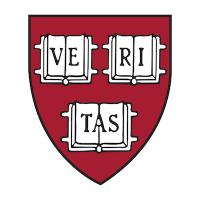What do they do?
Plan and direct cleanup and redevelopment of contaminated properties for reuse. Does not include properties sufficiently contaminated to qualify as Superfund sites.
Also known as:
Brownfield Program Director, Brownfield Program Manager, Brownfield Redevelopment Coordinator, Brownfields Practice Leader, Brownfields Program Coordinator, Brownfields Program Manager, Environmental Practice Leader, Environmental Program Manager, Environmental Quality Division Manager, Environmental Quality Specialist
-
0.7%
Change
Ranks #50 in job growth rate1,270Job Openings
Ranks #26 in net job growth
Looking for colleges that offer a specific major? Use the College Match Tool to find your best-matched schools and discover your estimated Net Price!
- Bachelor's degree (35%)
- Master's degree (18%)
- Some college, no degree (18%)
- High school diploma equivalent (15%)
- Associate's degree (8%)
- Doctorate or Professional Degree (4%)
- Less than high school diploma (4%)
Most Popular Majors that prepare Brownfield Redevelopment Specialists and Site Managers
-
#1
-
Degrees Granted
136,380
-
Female Students
63,904
-
Male Students
72,476
-
Median Starting Salary
$39,500
-
-
#2
-
Degrees Granted
36,162
-
Female Students
19,073
-
Male Students
17,089
-
Median Starting Salary
$44,500
-
-
#3
-
Degrees Granted
24,556
-
Female Students
11,684
-
Male Students
12,872
-
Median Starting Salary
$48,168
-
-
#4
-
Degrees Granted
20,902
-
Female Students
8,615
-
Male Students
12,287
-
Median Starting Salary
$42,000
-
-
#5
-
Degrees Granted
17,726
-
Female Students
5,279
-
Male Students
12,447
-
Median Starting Salary
$53,900
-
People in this career often have these skills:
- Complex Problem Solving - Identifying complex problems and reviewing related information to develop and evaluate options and implement solutions.
- Reading Comprehension - Understanding written sentences and paragraphs in work-related documents.
- Speaking - Talking to others to convey information effectively.
- Critical Thinking - Using logic and reasoning to identify the strengths and weaknesses of alternative solutions, conclusions, or approaches to problems.
- Monitoring - Monitoring/Assessing performance of yourself, other individuals, or organizations to make improvements or take corrective action.
- Coordination - Adjusting actions in relation to others' actions.
- Judgment and Decision Making - Considering the relative costs and benefits of potential actions to choose the most appropriate one.
- Active Listening - Giving full attention to what other people are saying, taking time to understand the points being made, asking questions as appropriate, and not interrupting at inappropriate times.
- Writing - Communicating effectively in writing as appropriate for the needs of the audience.
- Mathematics - Using mathematics to solve problems.
- Systems Evaluation - Identifying measures or indicators of system performance and the actions needed to improve or correct performance, relative to the goals of the system.
- Negotiation - Bringing others together and trying to reconcile differences.
- Systems Analysis - Determining how a system should work and how changes in conditions, operations, and the environment will affect outcomes.
- Time Management - Managing one's own time and the time of others.
People in this career often know a lot about:
- English Language - Knowledge of the structure and content of the English language including the meaning and spelling of words, rules of composition, and grammar.
- Customer and Personal Service - Knowledge of principles and processes for providing customer and personal services. This includes customer needs assessment, meeting quality standards for services, and evaluation of customer satisfaction.
- Law and Government - Knowledge of laws, legal codes, court procedures, precedents, government regulations, executive orders, agency rules, and the democratic political process.
- Administration and Management - Knowledge of business and management principles involved in strategic planning, resource allocation, human resources modeling, leadership technique, production methods, and coordination of people and resources.
- Mathematics - Knowledge of arithmetic, algebra, geometry, calculus, statistics, and their applications.
- Chemistry - Knowledge of the chemical composition, structure, and properties of substances and of the chemical processes and transformations that they undergo. This includes uses of chemicals and their interactions, danger signs, production techniques, and disposal methods.
People in this career often have talent in:
- Problem Sensitivity - The ability to tell when something is wrong or is likely to go wrong. It does not involve solving the problem, only recognizing that there is a problem.
- Oral Comprehension - The ability to listen to and understand information and ideas presented through spoken words and sentences.
- Written Comprehension - The ability to read and understand information and ideas presented in writing.
- Oral Expression - The ability to communicate information and ideas in speaking so others will understand.
- Written Expression - The ability to communicate information and ideas in writing so others will understand.
- Deductive Reasoning - The ability to apply general rules to specific problems to produce answers that make sense.
- Inductive Reasoning - The ability to combine pieces of information to form general rules or conclusions (includes finding a relationship among seemingly unrelated events).
- Information Ordering - The ability to arrange things or actions in a certain order or pattern according to a specific rule or set of rules (e.g., patterns of numbers, letters, words, pictures, mathematical operations).
- Mathematical Reasoning - The ability to choose the right mathematical methods or formulas to solve a problem.
- Speech Recognition - The ability to identify and understand the speech of another person.
- Speech Clarity - The ability to speak clearly so others can understand you.
- Category Flexibility - The ability to generate or use different sets of rules for combining or grouping things in different ways.
- Near Vision - The ability to see details at close range (within a few feet of the observer).
- Fluency of Ideas - The ability to come up with a number of ideas about a topic (the number of ideas is important, not their quality, correctness, or creativity).
People in this career often do these activities:
- Identify environmental concerns.
- Manage environmental sustainability projects.
- Prepare proposals or grant applications to obtain project funding.
- Implement organizational process or policy changes.
- Estimate green project costs.
- Analyze risks to minimize losses or damages.
- Develop environmental remediation or protection plans.
- Evaluate environmental or sustainability projects.
- Prepare operational progress or status reports.
- Inspect condition or functioning of facilities or equipment.
- Maintain operational records for green energy processes or other environmentally-sustainable activities.
- Dispose of hazardous materials.
- Coordinate operational activities.
- Analyze data to determine project feasibility.
- Prepare forms or applications.
- Negotiate contracts for environmental remediation, green energy, or renewable resources.
- Plan environmental research.
- Train employees on environmental awareness, conservation, or safety topics.
- Advise others on legal or regulatory compliance matters.
This page includes data from:

 Occupation statistics: USDOL U.S. Bureau of Labor Statistics Occupational Employment Statistics
Occupation statistics: USDOL U.S. Bureau of Labor Statistics Occupational Employment Statistics
 Videos: CareerOneStop, USDOL/ETA and the Minnesota Department of Employment & Economic Development
Videos: CareerOneStop, USDOL/ETA and the Minnesota Department of Employment & Economic Development






















